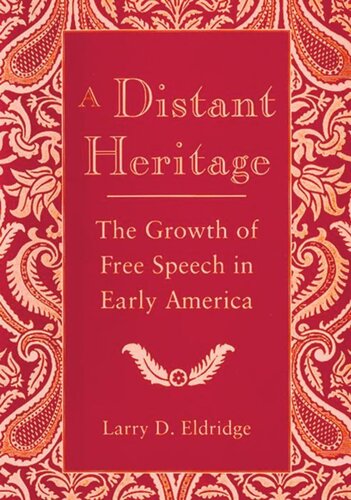

Most ebook files are in PDF format, so you can easily read them using various software such as Foxit Reader or directly on the Google Chrome browser.
Some ebook files are released by publishers in other formats such as .awz, .mobi, .epub, .fb2, etc. You may need to install specific software to read these formats on mobile/PC, such as Calibre.
Please read the tutorial at this link: https://ebookbell.com/faq
We offer FREE conversion to the popular formats you request; however, this may take some time. Therefore, right after payment, please email us, and we will try to provide the service as quickly as possible.
For some exceptional file formats or broken links (if any), please refrain from opening any disputes. Instead, email us first, and we will try to assist within a maximum of 6 hours.
EbookBell Team

0.0
0 reviewsHistorians often rely on a handful of unusual cases to illustrate the absence of free speech in the colonies—such as that of Richard Barnes, who had his arms broken and a hole bored through his tongue for seditious words against the governor of Virginia. In this definitive and accessible work, Larry Eldridge convincingly debunks this view by revealing surprising evidence of free speech in early America.
Using the court records of every American colony that existed before 1700 and an analysis of over 1,200 seditious speech cases sifted from those records, A Distant Heritage shows how colonists experienced a dramatic expansion during the seventeenth century of their freedom to criticize government and its officials. Exploring important changes in the roles of juries and appeals, the nature of prosecution and punishment, and the pattern of growing leniency, Eldridge also shows us why this expansion occurred when it did. He concludes that the ironic combination of tumult and destabilization on the one hand, and steady growth and development on the other, made colonists more willing to criticize authority openly and officials less able to prevent it. That, in turn, established a foundation for the more celebrated flowering of colonial dissent against English authority in the eighteenth century.
Steeped in primary sources and richly narrated, this is an invaluable addition to the library of anyone interested in legal history, colonial America, or the birth of free speech in the United States.